This Is the Worst Time to Buy a Christmas Tree, Experts Say
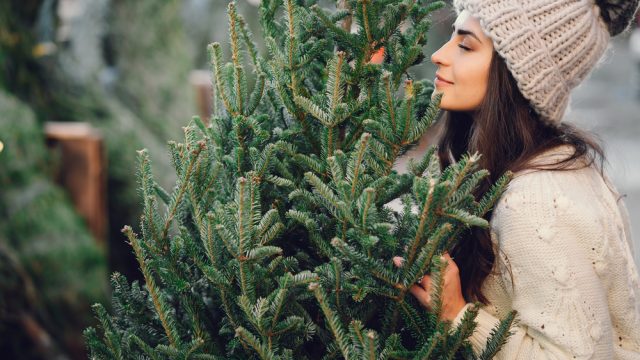
It may be the most wonderful time of the year, but the holiday season can quickly become the most stressful time of the year, too. From making sure you cover your entire shopping list to coordinating visiting relatives all the way through planning family feasts, it can become too easy to miss out on enjoying the holiday season. And in the rush to get everything done, you might even put off your trip to pick out this year’s tree. But according to experts, there are a few things you should know to avoid buying your Christmas tree at the wrong time. Read on for some Tannenbaum tips that can save you money and grief—especially this year.
RELATED: Never Use This One Card to Pay for Holiday Gifts, FBI Says.
You should buy your Christmas tree as close to Thanksgiving as possible this year.
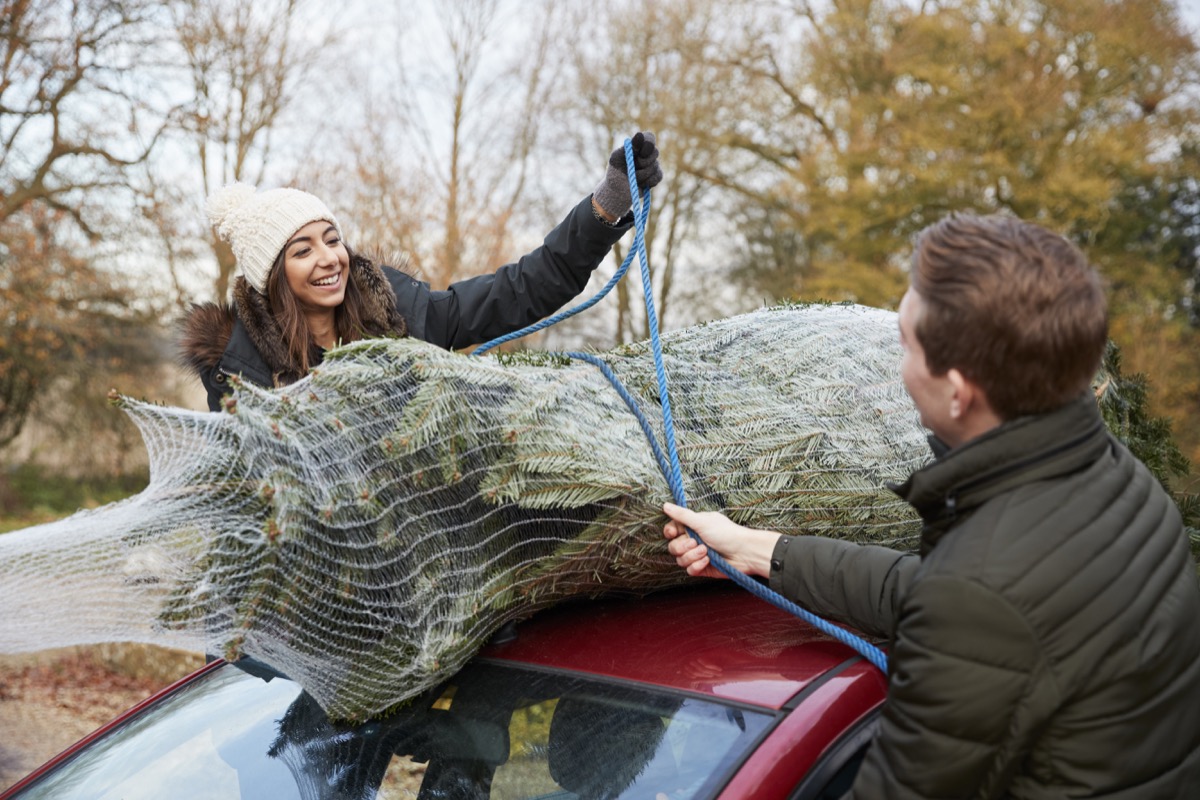
We’ve all been in the position where we lose track of time and suddenly realize there are only days to go before the holidays. But if you’re planning to buy a Christmas tree this year, you shouldn’t put it off the task for too long. Thanks to supply issues and a limited stock this season, experts strongly recommend that people shop for their tree early. Otherwise, you may be left paying even more for whatever happens to be left on the lot.
“The demand this year is going to be extremely strong, and so I think from a consumer perspective people definitely shouldn’t wait,” Chris Butler, CEO of National Tree Company, a top importer and wholesaler of artificial Christmas trees and holiday decorations, told CNBC. “Consumers should buy now because by the time we get to Thanksgiving, which is a peak week for us, I think there’s going to be a lot of empty shelves. We’re seeing pretty strong growth right now already versus last year and so, I do think that we’re in for a big, big season this year.”
You can expect to pay more for your Christmas tree this year, too.
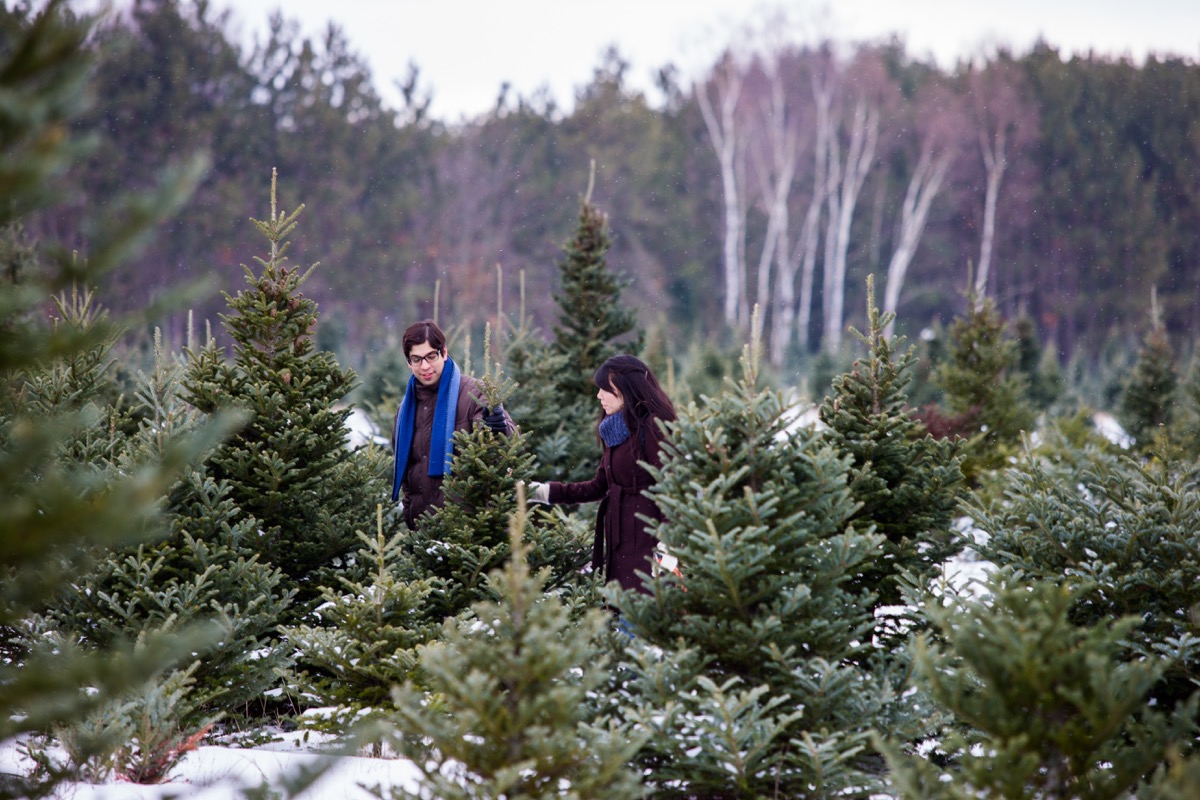
While some people put off buying their tree due to busy schedules, others may be tempted to wait it out to see if they can save some cash with a kind of Christmas closeout purchase. But besides there being a smaller inventory of trees this year, other supply chain issues will also be driving up the price. Experts are warning you can expect to pay more, no matter when you buy.
Butler tells CNBC that the cost of shipping containers has skyrocketed thanks to the crunch created by the COVID-19 pandemic, increasing their regular prices from around $2,000 or $3,000 to as much as $20,000. As a result, he says he plans to pass some of the costs along to customers in the form of a 25 percent price increase.
RELATED: The Latest Major Shortage Is Happening at the Worst Time Possible.
Even trying to buy an artificial Christmas tree will be more difficult this year—and more expensive.
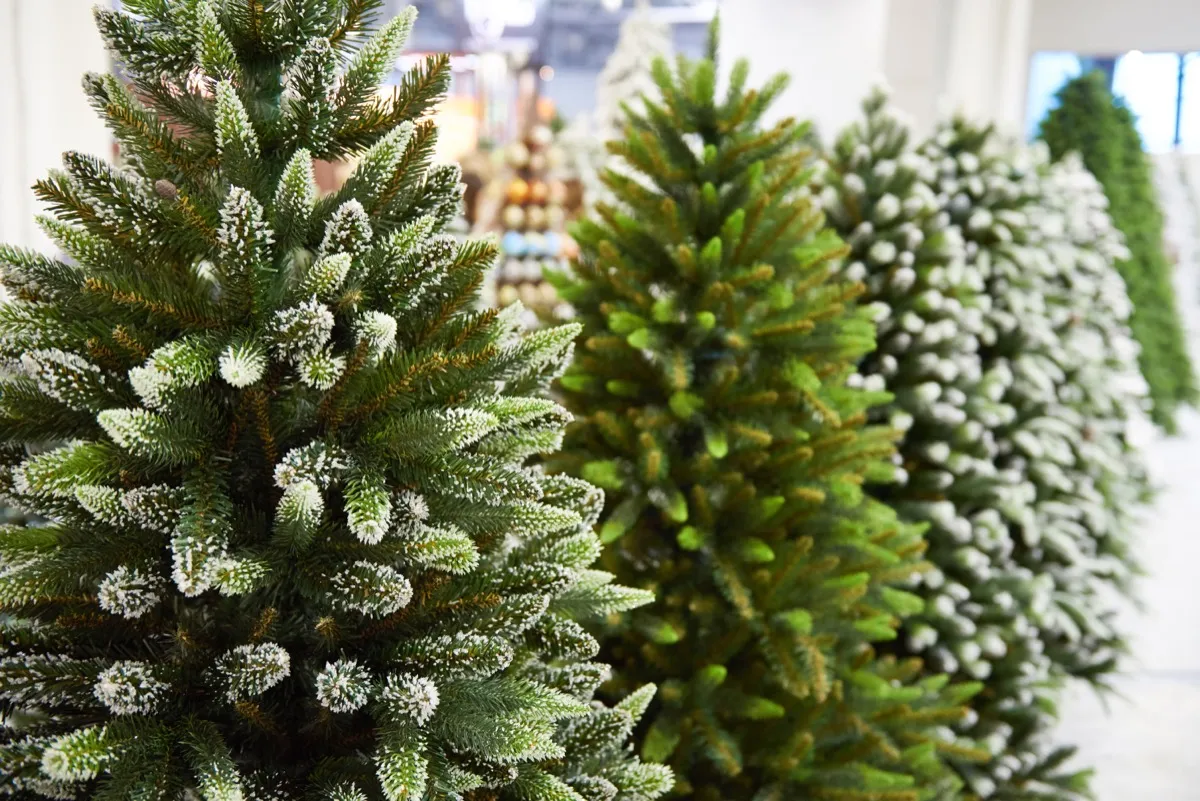
If this year’s waning supplies and rising prices have you considering switching to an artificial tree, you may want to think again. Similar to their authentic counterparts, artificial Christmas trees are suffering from the same supply issues that are creating a reduced inventory.
“The great majority of our artificial Christmas trees are manufactured in China, and Christmas trees and pretty much every other consumer good is languishing either out at sea or hasn’t shipped yet,” Jami Warner, the executive director of the American Christmas Tree Association, a trade group that represents the artificial Christmas tree industry, tells Consumer Reports.
And it’s not just a supply issue: experts warn that fake trees will still cost more due to increased shipping costs, as well. “We expect to raise prices for artificial Christmas trees by around 15 percent,” Brian Chee, the director of portfolio business at Treetopia, a Christmas tree retailer, tells Consumer Reports.
A well-watered tree can still stay healthy for four to five weeks.
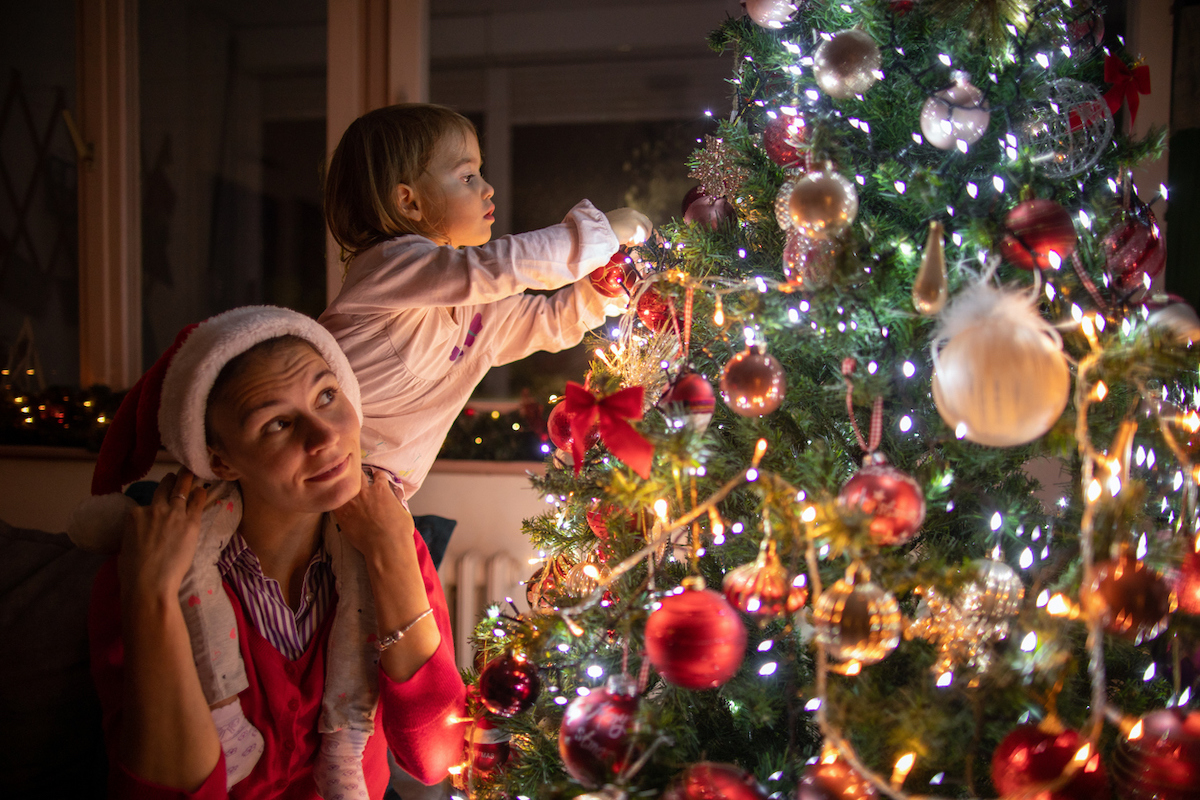
Besides a tight schedule and bargain hunting, some tend to put off purchasing their annual pine out of fear it will crisp up well before the holiday arrives. But according to experts, freshly cut Christmas trees will last for four to five weeks if they’re well cared for. To make sure you’re starting with a healthy tree, check it for even color across branches and needles, pliable outer branches, smooth bark, and that fresh scent that makes having a real tree in the house that much more special. From then on, you should water it every day for the first two weeks it’s cut, ideally giving it one quart of water per inch of trunk diameter.
But even with as much of a crunch on supply, experts are reminding everyone not to let their panic over getting a Christmas tree ruin their holiday season. “This year, I think people will be able to celebrate Christmas with their families again and with their friends, and no one is going to notice if you don’t have that very, very perfect Christmas tree,” Warner told NPR. “Really, there are no such thing as bad Christmas trees—they’re all beautiful.”
RELATED: Never Buy This One Food at Walmart, Customers Say in New Survey.